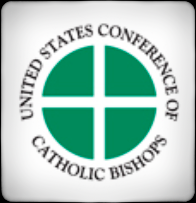Download a PDF of this blog series
Like many Catholics, I have been bitterly disappointed in the church's negligence in its response to the pedophile priests. And as someone who thinks legal immigration should be reduced and illegal immigration should not be encouraged, I have been disappointed that the policy preferences of the U.S. Conference of Catholic Bishops seem to be reducible to a slogan: "More green cards, less enforcement!"
But after viewing a video of a presentation at an immigration conference last month at the University of Notre Dame, I now have a better understanding of the bishops' immigration advocacy. But I also have a new criticism.

The speaker was Kevin Appleby, director of migration policy and public affairs at the U.S. Conference of Catholic Bishops. Like me, Kevin is an alumnus of Notre Dame. I know him to be a man of great integrity and deep humanity.
Kevin is also skilled politically. I first became aware of his lobbying prowess on Capitol Hill in 2006, when the Senate Judiciary Committee passed a sweeping comprehensive immigration reform bill.
Kevin was at the center of a celebration that spontaneously broke out in the hearing room. Also there was Randall Johnson of the U.S. Chamber of Commerce, who hugged Jeanne Butterfield of the American Immigration Lawyers Association. Frank Sharry, then of the National Immigration Form, slapped Kevin on the back and acknowledged the lobbying effort he had led by exclaiming, "The Catholic boys did it!"
"The Catholic boys" are an important part of the strange-bedfellows coalition that keeps pushing for the cumbersome package of measures known as "comprehensive immigration reform."
In his talk last month at Notre Dame, Kevin acknowledged that the church, like employers who want visas for immigrant workers and unions who want new members, has a vested interest in expansive immigration policies. But he said there was a key difference in the church's work.
"It's driven from our mission, our pastoral mission to welcome the stranger and cater to our flock," he said.
He pointed out that the Church has a long history of helping immigrants to integrate into American society. And he noted that Catholic institutions – parishes, schools, hospitals – every day "see human beings that are broken" because of enforcement efforts by federal authorities who in recent years have ramped up detention and enforcement at the insistence of Congress.
"I always say to the bishops that good policy on immigration reform is also good pastoral policy because immigrants know that the Church is welcoming them and that the Church is advocating on their behalf," Kevin said.
These are admirable concerns. As a Catholic I share them. But I think they must be coupled with tradeoffs that the church does not accept.
My reservations about the church's advocacy stem primarily from the fact that it has been unconstrained by concerns about the negative effects of mass immigration of unskilled workers into our economy, especially at a time of large-scale unemployment among American citizens. I think the church's position has the effect not just of assisting migrants who are already here – legally and illegally – but also of encouraging more to come.
Kevin's presentation was eloquent and deeply felt. It would have been better if it had acknowledged the concerns of a former Notre Dame President, the Rev. Theodore Hesburgh, who was chairman of a federal commission on immigration reform that finished its work at the beginning of the Reagan presidency.
In 1986, as Congress used the commission's recommendations as the framework for Immigration Reform and Control Act, Hesburgh wrote:
I undertook my role as commission chairman by asking: Why should immigration be a problem? Why not let down the barriers and let people move freely? After our two years of study, the question answered itself. It is not enough to sympathize with the aspirations and plight of illegal aliens. We also must consider the consequences of not controlling our borders. What about the aspirations of Americans who must compete for jobs and whose wages and work standards are depressed by the presence of illegal aliens?
Concerns like these receive little or no attention at conferences like the one at Notre Dame. That is my criticism, both of the conference and of the bishops. I believe this lack of interest in – or even awareness of – the concerns of those on the other side of the debate is part of the reason for the current legislative stalemate.
More on that tomorrow.
Continue to Part 2
